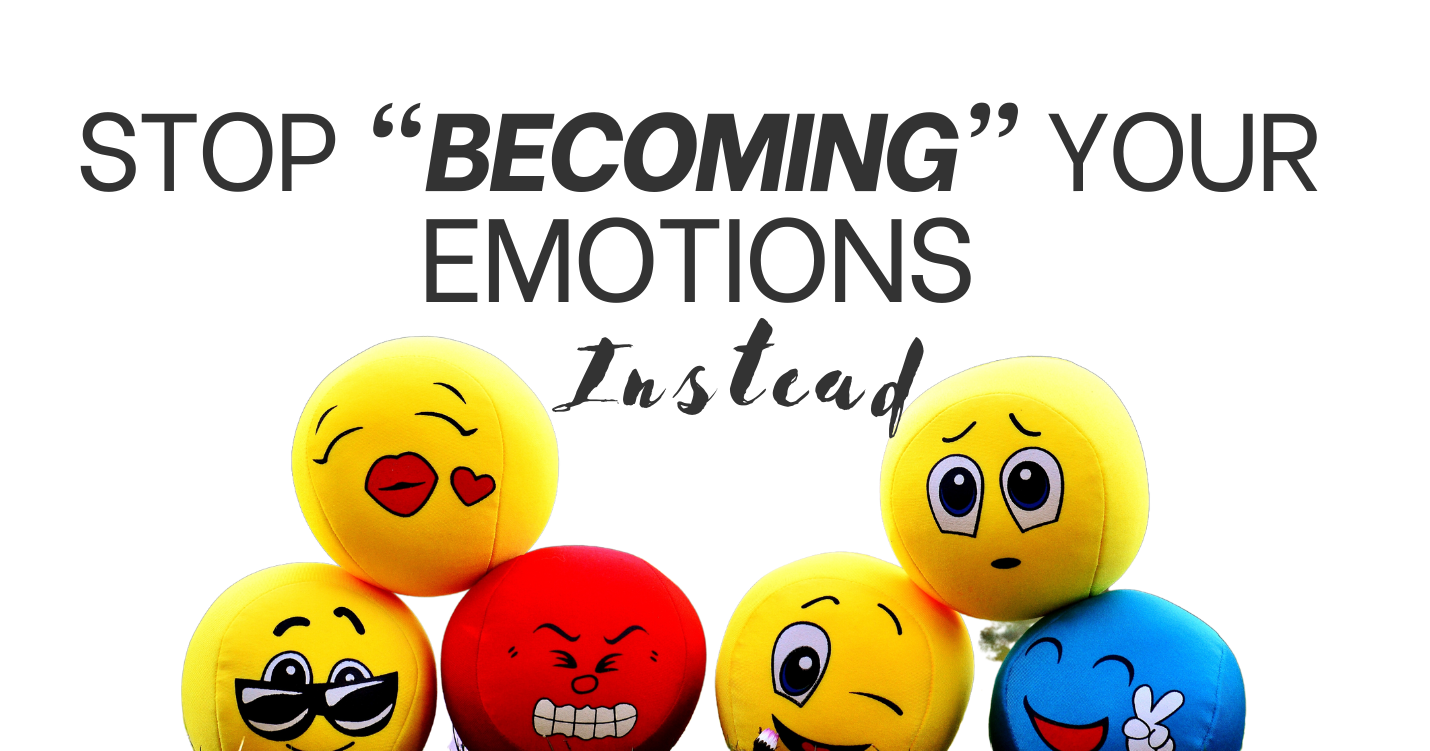The concept of “becoming the emotion” often refers to becoming overwhelmed or consumed by a particular emotion, to the point where it significantly impacts your thoughts, behaviors, and overall well-being. Here are some strategies to help you avoid being consumed by emotions and maintain a healthier relationship with them:
1. Mindfulness and Observation:
Practice mindfulness to observe your emotions without judgment.
Instead of getting caught up in the emotion, step back and objectively observe it. This can help you create some distance.
2. Identify Triggers:
Identify the situations, thoughts, or events that trigger strong emotional reactions.
Understanding your triggers can help you prepare for and manage emotions more effectively.
3. Label Your Emotions:
Clearly label and identify the specific emotion you’re experiencing.
This can help you gain clarity and a sense of control over the emotion.
4. Practice Emotional Regulation Techniques:
Learn and practice techniques for emotional regulation, such as deep breathing, progressive muscle relaxation, or guided imagery.
These techniques can help you stay calm and centered during emotionally challenging situations.
5. Create Space:
Give yourself some physical and mental space when you feel overwhelmed by an emotion.
Take a break, go for a walk, or engage in a calming activity to create a buffer between you and the intensity of the emotion.
6. Cognitive Restructuring:
Challenge and reframe negative or irrational thoughts associated with the emotion.
Ask yourself if there are alternative perspectives or more balanced ways to view the situation.
7. Set Boundaries:
Establish and communicate boundaries that protect your emotional well-being.
Knowing and communicating your limits can prevent you from being engulfed by situations that trigger intense emotions.
8. Practice Self-Compassion:
Be kind and compassionate toward yourself, especially when experiencing challenging emotions.
Avoid self-criticism and treat yourself with the same empathy you would offer to a friend.
9. Engage in Healthy Outlets:
Channel your emotions into constructive activities such as exercise, creative pursuits, or journaling.
Healthy outlets allow you to express and process emotions in a positive way.
10. Seek Support:
Talk to friends, family, or a mental health professional about your emotions.
Sharing your feelings with others can provide validation, support, and different perspectives.
Remember that emotions are a natural part of being human, and it’s okay to feel a wide range of them. The goal is not to suppress emotions but to develop a healthy relationship with them, where you can acknowledge, observe, and respond to them in ways that align with your well-being. If you find it challenging to manage intense emotions on your own, seeking professional support can provide additional tools and guidance.


